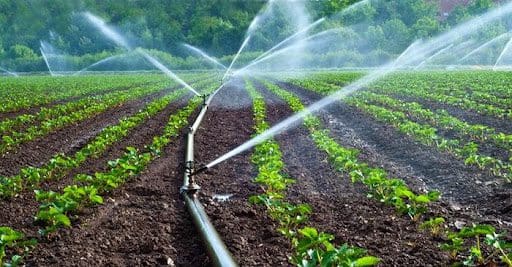Ghana’s government has unveiled an ambitious nationwide expansion of solar-powered irrigation systems designed to revolutionize agricultural productivity and eliminate the country’s persistent dependence on unpredictable rainfall patterns.
Energy and Green Transition Minister John Abdulai Jinapor announced the comprehensive rollout during recent stakeholder engagements, emphasizing that the initiative will extend the successful Water-Energy-Nexus Project model to irrigation schemes across all regions. The announcement comes as construction begins on the flagship 1-megawatt solar installation at Dawhenya Irrigation Scheme, funded through a $5 million Korean government investment.
But here’s what makes this particularly significant—it’s not just about one successful project anymore. The government has set a target of bringing more than one million hectares under irrigation within five years, beginning with 400 solar water pumps in 2026 and scaling dramatically to 3,500 pumps by 2028 to irrigate approximately 400,000 hectares.
The pilot expansion will begin in three regions within coming weeks, according to Jinapor, who confirmed that financial backing has already been secured. “Approval has already been secured from the Minister of Finance,” he stated, underlining the project’s solid funding foundation.
What’s driving this urgency? Ghana’s agricultural sector remains overwhelmingly dependent on rainfall, leaving farmers vulnerable to climate variability that can devastate entire harvests. The solar irrigation approach promises year-round farming capability while addressing multiple challenges simultaneously—food security, import reduction, currency stabilization, and renewable energy advancement.
The initiative was revealed at the seventh meeting of the International Solar Alliance (ISA) regional committee for Africa, where officials stressed the programme would help reduce heavy dependence on rain-fed agriculture. This timing isn’t coincidental—Ghana is positioning itself as a regional leader in climate-smart agriculture solutions.
The technical foundation appears solid. Ghana enjoys abundant solar resources with daily irradiation ranging from 4 to 6 kWh per square meter and annual sunshine hours between 1,800 and 3,000, providing excellent conditions for solar electricity generation. This natural advantage makes solar irrigation economically viable compared to expensive diesel generator alternatives.
Integration across government ministries demonstrates comprehensive planning. Jinapor emphasized collaboration with the Agriculture Ministry, noting plans for “an integrated system that provides both irrigation and potable water for communities.” This dual-purpose approach maximizes infrastructure investment efficiency while addressing rural water access challenges.
The expansion builds on the broader Ghana-Korea partnership framework, established through a $2 billion agreement signed in June 2024 during the Korea-Africa Summit, targeting infrastructure, agriculture, health, education, energy, roads, transport, and ICT development over five years.
The Korean partnership brings proven technical expertise in agricultural modernization. South Korea transformed its own agricultural sector through similar irrigation investments, providing a successful model for Ghana’s implementation. The collaboration includes technology transfer, capacity building, and ongoing technical support—critical elements for sustainable project success.
Financial mechanisms are already taking shape beyond the initial Korean funding. The International Solar Alliance has launched a $200 million catalytic finance facility to accelerate solar adoption across Africa, with the first $75 million to be operationalized before end-2025, potentially providing additional funding sources for Ghana’s expansion plans.
Early economic benefits are already visible from the pilot project. The Dawhenya installation will reduce operational costs by eliminating expensive diesel fuel requirements while providing reliable power for consistent irrigation operations. These savings can be reinvested in agricultural inputs, creating positive economic cycles for farming communities.
Environmental benefits align with Ghana’s climate commitments. Solar irrigation systems produce zero operational emissions while enabling more efficient water usage through precise application timing and volumes. This combination addresses both mitigation and adaptation aspects of climate action.
The implementation strategy shows practical understanding of scaling challenges. Rather than attempting immediate nationwide deployment, the phased approach allows for learning, adjustment, and capacity building. The three-region pilot will provide operational experience before broader expansion phases begin.
Local resource mobilization plans ensure long-term sustainability. Jinapor emphasized that while Korean partnership provides technical foundation, Ghana will mobilize domestic resources to sustain and expand the programme. This approach builds local ownership while reducing external dependency over time.
The project addresses multiple economic vulnerabilities simultaneously. Ghana’s food import bill strains foreign exchange reserves while exposing the country to international price volatility. Increased domestic production through reliable irrigation could significantly reduce these imports while stabilizing local food prices.
Success could position Ghana as a regional agricultural technology hub. Other West African countries face similar rainfall dependency challenges, creating potential export markets for solar irrigation solutions and technical expertise developed through this programme.
The timing proves strategic as global agricultural technology evolves rapidly. Early adoption of climate-smart irrigation positions Ghana advantageously for accessing international climate finance and technology partnerships that increasingly favor countries demonstrating practical implementation capacity.
Source: newsghana.com.gh











